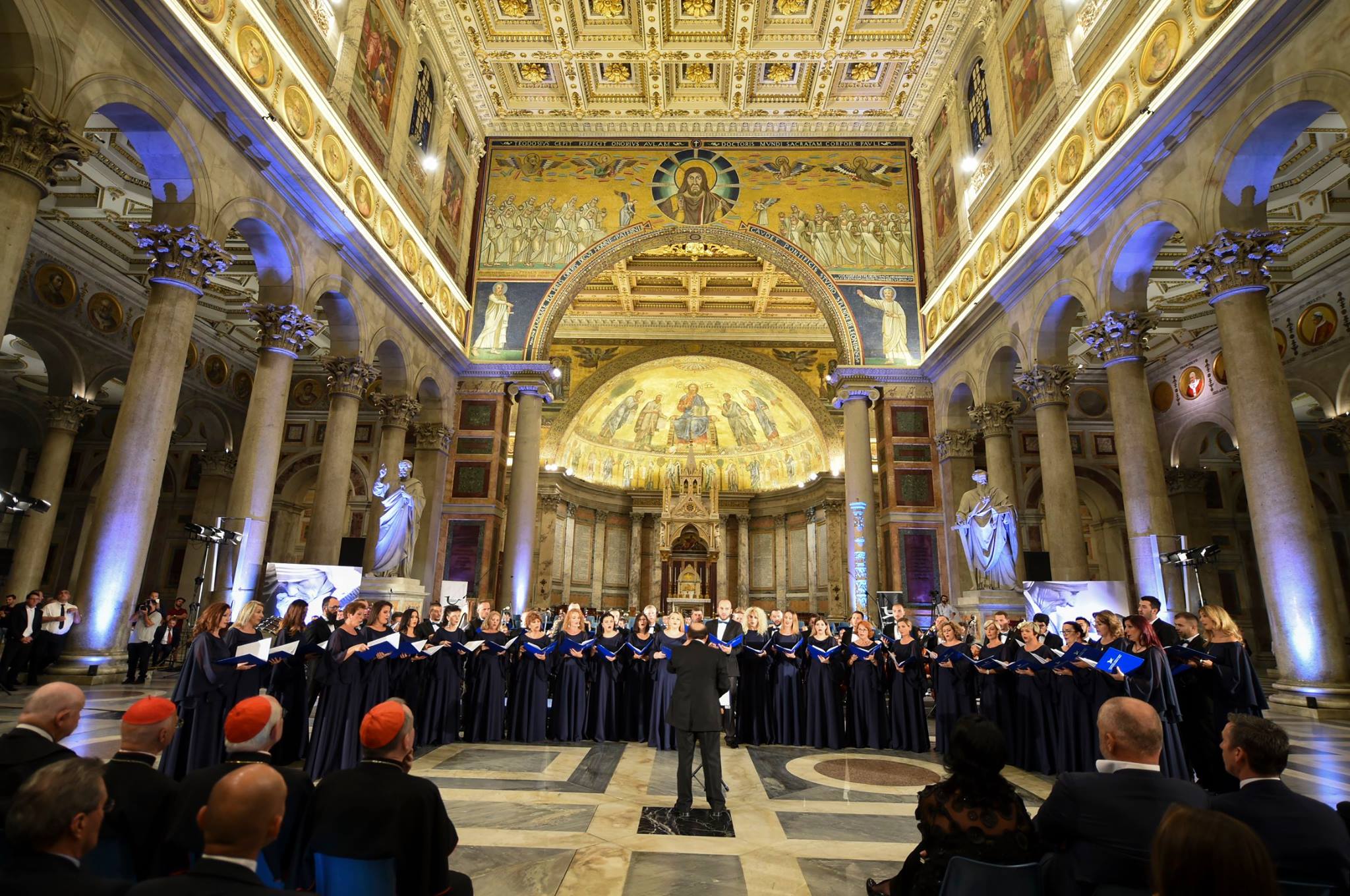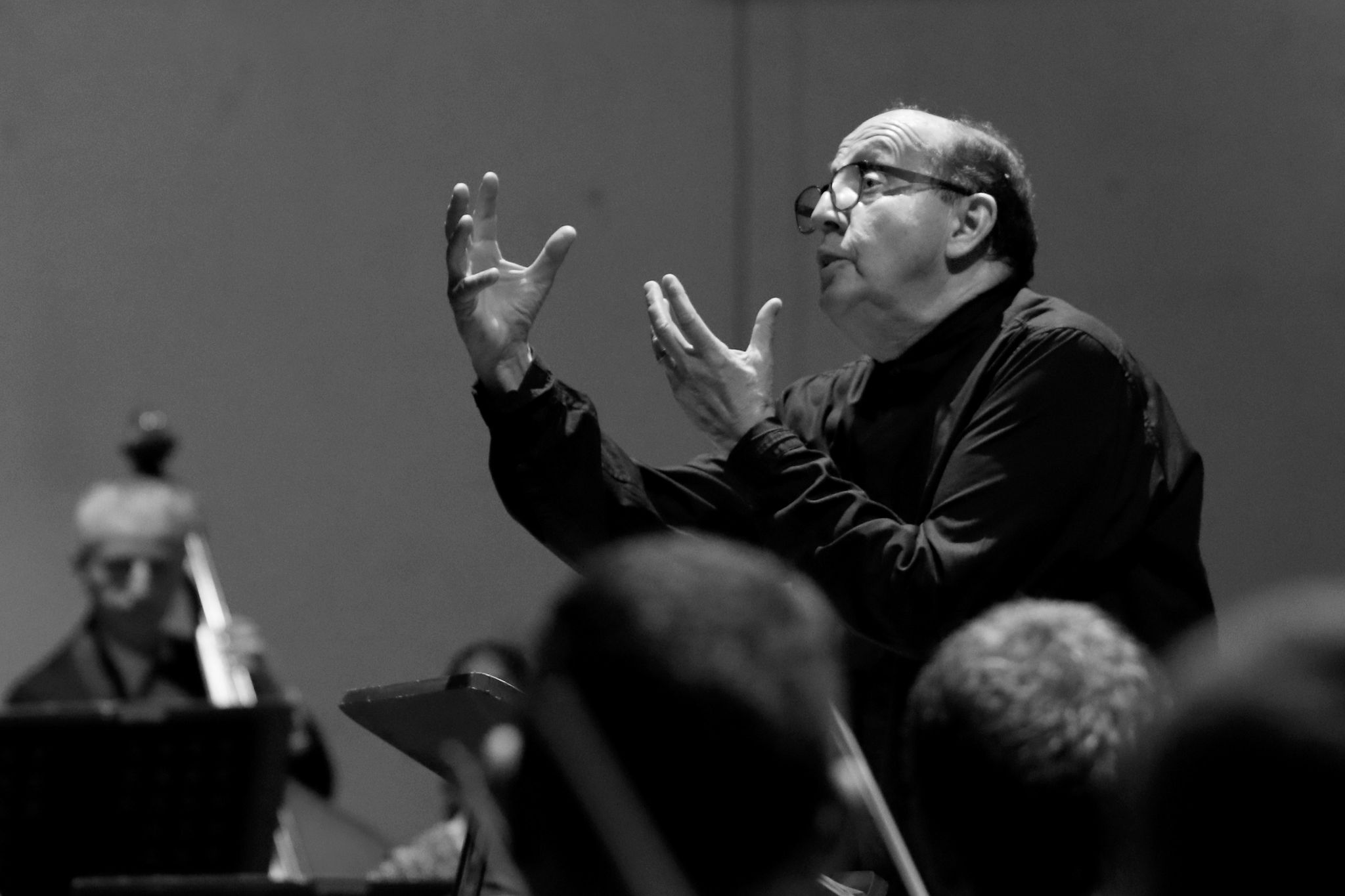BIOGRAFIA
Rafet Rudi në jetën muzikore të Kosovës , me veprimtarinë e tij si kompozitor, si dirigjent dhe si mendimtar shprehur në fushën e publicistikës dhe filozofisë së muzikës, si anëtar i Akademisë Europiane të Shkencës dhe Arteve, paraqet personalitetin më të spikatur dhe më aktiv në 2-3 dekadat e fundit në botën muzikore të Kosovës.
Formimi kompozitorial
Rafet Rudi, kompozitor shqiptar/kosovar, u lind më 1949 në Mitrovicë (Kosovë). Studjoi në Akademinë e Muzikës në Beograd. Diplomoi për Kompozicion (1974) dhe për Dirigjim (1973), në klasën e kompozitorit Predrag Miloseviç. Gjatë kohës së studimeve dhe formimit të tij si kompozitor, në Beograd dhe në tërë qendrat jugosllave frekuentonin orkestrat me renome (Filharmonia e Berlinit, Filharmonia e Vjenës, etj.), artistë me renome botërore (H.von Karajan, J.Krips, G. Rozhdestvensky, D. Schostakovich, J. Cage etj.). Jetën muzikore e bënin dinamik edhe Festivali i Muzikës avangarde në Opati (Tribuna e Krijmtarisë Muzikore Jugosllave) dhe “Bienalja e Zagrebit”. Gjatë këtyre pesë vjetëve të qëndrimit në Beograd kompozoi vepra të gjinive të ndryshme: solistike, kamertale dhe simfonike. Veprat e kësaj periudhe ishin nën influencën e kompozitorëve neoklasik (Schostakovich, Prokofjev, Bartok etj.) Në këtë kohë u laureuar me çmimin e festivalit prestigjios BEMUS, për veprën Blloku simfonik (Simfonia).
Pas mbarimit të studimeve bachelor në Beograd, kthehet në Prishtinë (1974). Punon shkurt si arsimtar në Shkollën e Muzikës dhe si producent i Orkestrës simfonike të Radio-Prishtinës. Nga viti 1976 deri në pensionim (2014) punën si Profesor i Analizës së Formave të Muzikës dhe Kompozicionit, në Akademinë e Muzikës në Prishtinë.
Ndikimet nga avangarda europiane (1975-1980)
Në mesin e viteve ’70-ta braktis fazën neoklasike, dhe përmes veprës “Kohë koncertante për piano e orkestër” (vepër me frymëzim të muzikës dodekafonike), bën përpjekje ta definoj më qartë hapësirën krijuese, duke u familjarizuar me rrymat avangarde. Njohja me veprat e kompozitorëve të shkollës së re polake (Lutosllavskit, Pendereckit, Serockit etj.) dhe festivalit Festivalit të muzikës avangarde “Vjeshta e Varshavës, ai i përshtatet tendencave të reja të muzikës atonale (Metarmofoza për tri solistë e orkestër harkor, Rrojtja për kitarë dhe harqe etj.). Këto vepra, të kompozuara në këtë kohë, u realizuan prej orkestrave jugosllave në Festivalin e muzikës moderne në Opati. Veprat e R.Rudit, në këtë periudhë, edhe më tutje, mbështeten në shprehjen e muzikës nacionale, por tashti ai hulumton shtresat më të thella të kësaj muzike. Krahas kësaj, ai ruan kontekstin stilistik korenspondues me rrjedhat më të reja dhe më avangarde të kohës. “Në R. Rudin unë shoh një muzicient të vërtet. Është kompozitor shumë i talentuar i cili posedon invencion dhe senzibilitet të posaqëm.” (Claude Ballif, Prof. në Konzervatoriumin e Parisit) “R.Rudi është një kompozitor jashtëzakonisht inventiv, i cili ka çka të thot, krijues që ka një ndjeshmëri të posaçme”. Ai para disa vitesh ishte zbulim për Beogradin ( Ana Kotevska, muzikologe, pas ekzekutimit të veprës “Kohë koncertante për piano e orkestër”
Ndikimet e rrethit parisien (1980-2000)
Periudhë e rëndësishme në karierën kompozitoriale e R. Rudit është qëndrimi i tij në Paris, si bursist i Qeverisë franceze (1979-1980). Aty ai përcolli Ligjëratat në CNSM (Kompozicionit dhe Analizën muzikore) në klasën e kompozitorit Claude Ballif. Si refleksion i studimeve në Paris, ai shkruan veprat: Suitë e vogël për kitarë (1981) Kantata “Flijimi” (1983), “Fantasia in Si” (1985) për violinë e piano, Koncerti për kitarë e Orkestër harkor (1986). Gradualisht, me këto vepra, Rudi fillon një fazë të re krijuese, ku idiomi i muzikës postmoderne është i integruar në krijimtarinë e tij, në mënyrë diskrete, me ç’rast vërejmë në veprat e Rudit rizbulimin e tonalitetit, që atij i shërben si burimi i impulsit të ri krijues (Prof. Ajgyl Temirzhanova-Basha). Kjo tendencë do të shfaqet sidomos me veprat e viteve ’90-ta, si “Icare ubi es” për solist, Kor, dy piano dhe perkusione, dhe posaqërisht në ciklin Afresk Arbëresh: “Këmbanat arbëreshe” për piano solo, “Afresk Arbëresh III” për 2 piano, Kor, perkusione, narator dhe Tape etj.
Zhvillimi i stilit –Arkaizmi dhe moderniteti (2000 – )
Në fillimi të viteve 2000, Rudi i kthehet përsëri ciklit Afresk arbëresh, duke hulumtuar me përkushtim më të përqëndruar format më arkaike të muzikës shqiptare. Tërë cikli (prej 6 veprash), për bazë ka këndimet tradicionale liturgjike të arbëreshëve të Italisë (shqiptarëve të shpërngulur në Itali që nga shekulli XV). Nga ky cikël veçohet vepra “Laudatio funebris”, për sopran dhe Okestër harkor. Vepra mbështet në strukturat melodike të këndimeve liturgjike arbëreshe dhe ka një shtjellim kompozicional minimalist.
Në dy dekadat e fundi, Rudi kompozon vepra të ndryshme si porosi nga bota ose në kuadër të bashkëpunimit me ansamble ndërkombëtare dhe me artistë të renomesë ndërkombëtare: Aki Takahashi, Rafael Andia, Marcel Worms, Ehat Musa, Peter Sheppard Skaerved, Petrit Çeku, Sihana Badivuku, Peter Arnaud Dumond, “Pierrot Lunaire Ensemble-Wien”, “Amici della Musica” –Cagliari etj.
Duke u liruar plotësisht nga shtrëngesat rigjide të platformave stilistike që shekulli XX determinon, Rudi, në këtë kohë, fillon ta qartësoj gjuhën e vet shprehëse lirshëm në mes arkaizmit të muzikës autoktone (shqiptare) dhe modernitetit. Veprat që e karakterizojnë këtë tendencë të Rudit janë: “Fantasia koncertante” për violinë dhe Kor, “Le tombeau Oublié” për piano solo, “In A”, për 2 soprano, Kor dhe perkusione dhe “Lament of the Sea”për Kor a capella.
Rudi është fitues i shumë konkurseve, çmimeve dhe mirënjohjeve. Veprat i luhen në shumë vende të botës: Francë, Zvicër, Angli, Itali, Holandë, Shqipëri, Rumuni, Spanjë, Suedi, Bullgari, Kroaci, Slloveni, Japoni etj. Është autor i botimeve të shumta në vend dhe jashtë (Francë, Gjermani, Monako dhe Holandë), nga disa shtëpi prestigjioze (Editions musicales Transantlantiques e Parisit, Peermusic e Hamburgut etj.)
Themelues i Festivalit “ReMusica“ (2002 -2015)
Rudi është bashkëudhëheqës i Qendrës Kosovare për Muzikën e Re (1999) dhe themelues i Festivalit ndërkombëtar të Prishtinës « ReMusica ». Drejtor i saj ishte në periudhën 2002-2015.
Qendra për Muzikën e Re është formuar, nga fundi i vitit 1999, me ndihmën e Vanessa Redgrave dhe me mbështetjen e kompozitorit Philip Glass. Fillimisht, kjo Qendër u formua si vazhdimësi e Festivalit “The Return”, të mbajtur në shtator të vitit 1999 me Vanessa Redgrave dhe pjesmarrjen e emrave të njohur europian në kuadër të ndihmës për Kosovën e pasluftës.
Në kuadër të veprimtarisë së Qendrës, nga viti 2002, nis punën Festivalin “ReMusica”, me të cilin Rudi zhvillon një aktivitet të madh në Kosovë, në popullarizimin e muzikës bashkëkohore, gjithashtu promovimin e muzikës bashkëkohore shqiptare.
Rudi si Dirigjent
Veprimtari tjetër e rëndësishëm e Rudit është dirigjimi. Në periudhën 1980-1987, veproi edhe si Dirigjent i Korit Profesional të Radio-televizionit të Prishtinës. Me këtë ansambël, koncertoi në të gjitha vendet e ish Jugosllavisë dhe ishte prezent në Festivalet e rëndësishme të kohës: ‘Lojrat Verore të Dubrovnikut’, ‘Vera e Ohrit’, Festivalin e Muzikës moderne, në Opati-Kroaci, në Festivalin e Beogradit-Serbi etj.). Pas një ndërprerje të gjatë aktivitetit si dirigjent, Rudi në vitin 2006, do t’i kthehet punës si dirigjent, tash si udhëheqës i Korit të Filharmonisë së Kosovës. Realizoi me qindra paraqitje publike me programe a capella. Koncertoi në shumë vende si në Maqedoni, Kroaci, Shqipëri, Itali, Angli. Nën drejtimin e tij, Kori dhe Orkestra e Filharmonisë realizojnë një mori veprash të rëndësishme vokalo-instrumentale si: Missa D-dur e Mozartit, ‘Vespro della Beata Virgine 1610’ e Monteverdit, Kantata Nr. 28 e Bahut, ‘Gloria’ e Vivaldit, Mesha C-dur e Beethovenit, Rekuiemi i Moxartit etj. Në vitet e fundit, Rudi i pëkushtohet zbulimit, restaurimit dhe adaptimit të literaturës korale të autorëve të vjetër shqiptarë. Për herë të parë, para publikut shqiptarë, shfaqen veprat me rëndësi të madhe historike të Gjergj Danush Llapacaj (shek. XVI), Jan Kukuzelit (shek. XIII) dhe Niketa Dardanit (Niketa i Remisianës, nga shek. IV). Këto vepra, po bëhen pjesë e repertorit standard koral tek ne.
Rudi si publicist
Rudi merret aktivisht me publicistikë. Ka mbi 400 shkrime të ndryshme nga fusha e publicistikës si dhe shkrime të ndryshme nga fusha e estetikës dhe filozofisë muzikore. Është autor i shumë teksteve mësimore dhe librit teorik (Botues “Dukagjini”), me çka plotësohet profili i tij krijues.
“Në R.Rudin unë shoh një muzicient të vërtet… kompozitor i cili posedon invencion dhe senzibilitet të veçantë” (Claude Ballif, Prof. në Konzervatoriumin e Parisit). Gjithsesi, ai paraqet “njërën prej figurave më emblematike të kulturës shqiptare/kosovare” (N.Kraja), dhe pamëdyshje “Rudi ka vlerë të jashtëzakonshme… dhe një peshë, do të thosha, kryesore në artin muzikor mbarëshqiptar” (E.Krantja). “Rudi synon hulumtimin e shtresave të thella të muzikës shqiptare, hulumton shpirtin e kësaj muzike… duke e ruajtur njëkohësisht kontekstin stilistik korenspondues me rrjedhat më të reja dhe më avangarde të kohës së sotme” (A. Temrzhanova- Basha)
Rafet RUDI, anëtar i rregullt i European Academy of Sciences and Arts dhe anëtar i Akademisë Shqiptare të Arteve dhe Shkencave
PRESS KIT
Problem displaying Facebook posts. Backup cache in use.
Click to show error
SOCIAL LINKS



